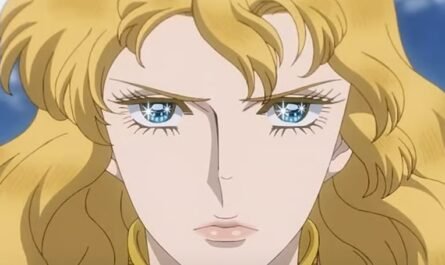The significance of “visualizing words” as shown by Jukki Hanada’s works
The appeal of Hanada Jukki’s work lies, above all, in the depiction of dialogue. In recent years, the viewing environment for anime has changed dramatically, and watching on smartphones and playing at double speed have become commonplace.
Also, with the proliferation of anime adaptations of works based on original works, it is natural for viewers to be cautious about changes from the original. However, this can sometimes lead to excessive criticism. Each medium, manga, anime, and novel, should have a way of weaving words that suit its characteristics. There is a way of expression unique to anime, and adjusting the dialogue to match it is essential.
In “Medalist,” there is a scene where such dialogue adjustment is truly impressive. The original work, “I want to win and lose in skating. Because I want to become a medalist as an athlete,” changes to “I want to compete in skating.” In anime, I want to become a medalist and an athlete. Could you read it out loud?
The moment you say it out loud, you will understand why this line was chosen to convey Inori’s determination more vividly and at a good tempo in the method of expression called animation. The appeal of “Medalist,” written by Jukki Hanada, lies in the resonance of every element that makes up the work.
Changing the lines is always a delicate task in a work based on an original work. However, in “Medalist,” each line is understated yet blends beautifully with the visuals, genuinely moving the viewer’s heart. Jukki Hanada’s animated version of “Medalist” gently illuminates the “correct answer as a visual” like a light shining on the ice.
The appeal of Hanada Jukki ‘s work lies, above all, in the depiction of dialogue. In recent years, the viewing environment for anime has changed dramatically, and watching on smartphones and playing at double speed have become commonplace. Also, with the proliferation of anime adaptations of works based on original works, it is natural for viewers to be cautious about changes from the original. However, this can sometimes lead to excessive criticism.
Each medium, manga, anime, and novel, should have a way of weaving words that suit its characteristics. There is a way of expression unique to anime, and adjusting the dialogue to match it is essential. In ” Medalist,” there is a scene where such dialogue adjustment is truly impressive.
In the original work, the line “I want to win and lose in skating. Because I want to become a medalist as an athlete” changes to “I want to compete in skating. I want to become a medalist as an athlete” in the anime. Could you read it out loud? The moment you say it out loud, you will understand why this line was chosen to convey Inori’s determination more vividly and at a good tempo in the method of expression called animation.
The appeal of “Medalist,” written by Jukki Hanada, lies in the resonance of each element that makes up the work. Changing the lines is always a delicate task in a work based on an original work. However, in “Medalist,” each line is understated yet blends beautifully with the visuals, genuinely moving the viewer’s heart. Jukki Hanada’s animated version of “Medalist” gently illuminates the “correct answer as a visual” like a light shining on the ice.











